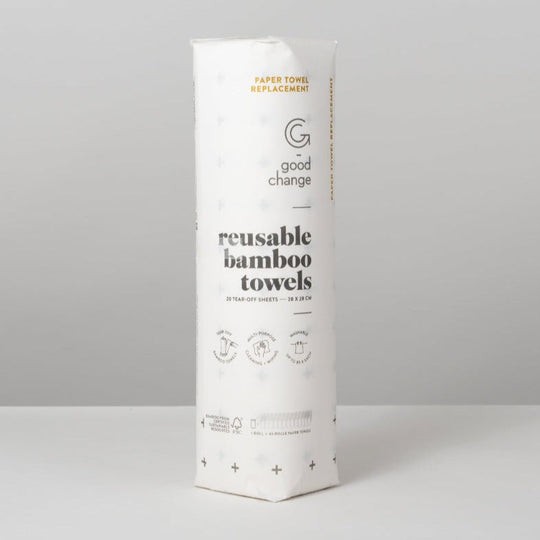Five Ways To Be More Eco-Friendly At Home
Did you know that your average everyday kitchen sponge or scotch-brite is made of a petroleum-based substance called polyurethane (PUR or PU) as well as other plastic-based materials?
Despite the global movement to reduce the use of single-use plastic in our every day lives, plastic-waste continues to be one of the leading issues when it comes to environmental damage and tackling the climate crisis. Certain types of plastic are extremely harmful, and all plastic takes an eternity to decompose.
So, every time we throw out something as small as a used sponge - we are adding to the ever-increasing plastic waste.
How can we break this cycle? How can we change our habits and live more sustainably in our every day life?
Here are our top five tips for making small changes in how you clean your home that will have a big impact on your environmental footprint.
1. Ditch that yucky scotch-brite and switch to an eco-friendly alternative.
Choose dish cloths and sponges that are reusable, and decompose completely once disposed of. Make sure your products aren't leaving dangerous micro-plastics behind.
2. Buy less, but choose well.
Switch from single-use mindset to a mindset of long-term use.
Cheap dishcloths do not last very long. After several washes the quality would deteriorate. Choose an eco-friendly cloth that you can use for at least six months - getting the best value for your money while reducing your environmental footprint.
3. Sterilise properly and constantly.
Sponges are a habitat for a multitude of bacteria, hence the need to constantly replace it.
Why not try the Good Change Eco Cloth? You can clean it with boiling water or pop it on the top rack of your dishwasher to ensure you're not wiping your kitchen counter with a bacteria-laden cloth.
4. Choose cleaning tablets or make your own cleaning solutions at home - and store in a reusable spray bottle.
Did you know that the average household in New Zealand and Australia uses and disposes of 30 single-use plastic cleaning bottles every year?
Cut down on your single-use plastic consumption immediately by making your own cleaning solutions using ingredients from you pantry.
If you don't have time to make your own solution, consider switching to cleaning refill tablets. 90% of the solution in a traditional cleaning spray is water - the remaining 10% is the cleaning agent. Usually, this includes harmful chemicals that give off a harsh scent, and are known to have detrimental effects on your health and wellbeing.
Check out our range of 100% natural cleaning tablets and our reusable Bottle For Good range. Your health and the planet with thank you.
5. Reuse and Recycle.
Old dish cloths that are no longer fit for kitchen use can still be used for cleaning the toilet or wiping grease and grime off your bike. Don't throw them out until you really, really need to.
Our Eco Cloths are made of 100% natural materials. You can bury it and it'll completely decompose, or you can use it for your seedlings as temporary weed mat. Zero waste - yay!




